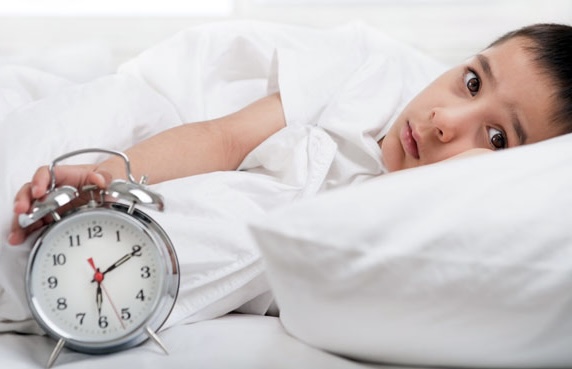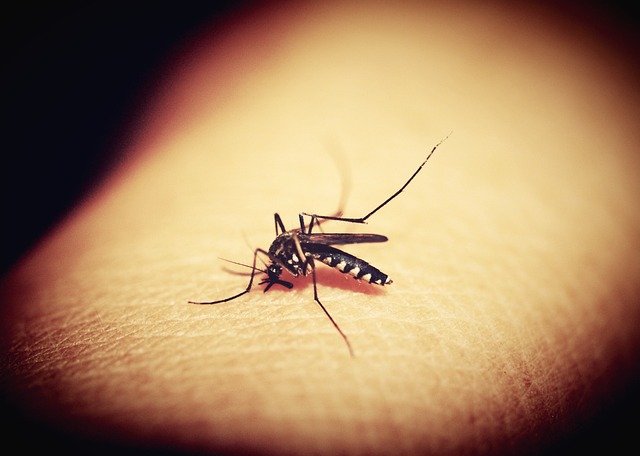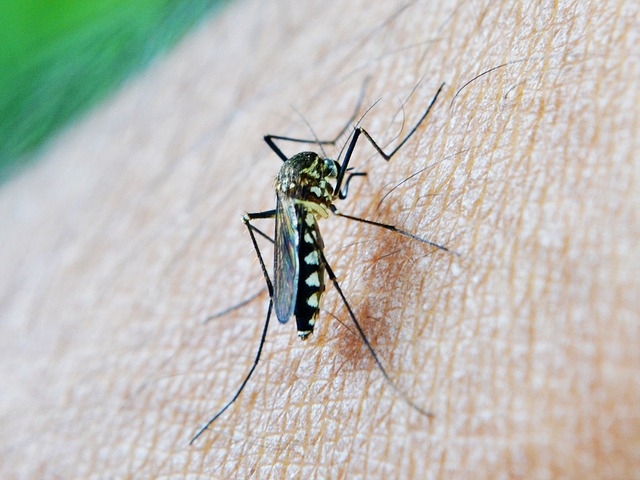Sleep apnea is a common breathing disorder that can happen while your child is sleeping. Getting the right treatment for sleep apnea can have a big impact on your child’s health and the quality of their sleep.
Symptoms
First off, it’s crucial to understand that obstructive sleep apnea (OSA) is a relatively common condition among children. It occurs when there’s a partial or complete blockage of their airway during sleep. You might notice your child exhibiting noisy breathing or snorting, seemingly struggling or gasping for breath at night. I can assure you, as a parent myself, it can be quite frightening for both the child and us. These episodes disrupt the respiratory system and interrupt the child’s sleep. Even if your child only stirs or doesn’t fully awaken during these moments, it’s always worth consulting with a doctor.
OSA can affect children of all ages, especially those between 2 to 6 years old. It’s estimated that approximately 2% of the population suffers from OSA, with a fairly equal male-to-female ratio.
However, the effects of sleep apnea extend beyond breathing difficulties. Interrupted sleep can leave children feeling tired and irritable, impacting their concentration and schoolwork. Moreover, it can be disruptive for the entire family. Sometimes, you may notice behavioral issues or difficulties with hyperactivity before identifying any breathing problems. Left untreated, severe sleep apnea can lead to serious health problems in children.
Causes
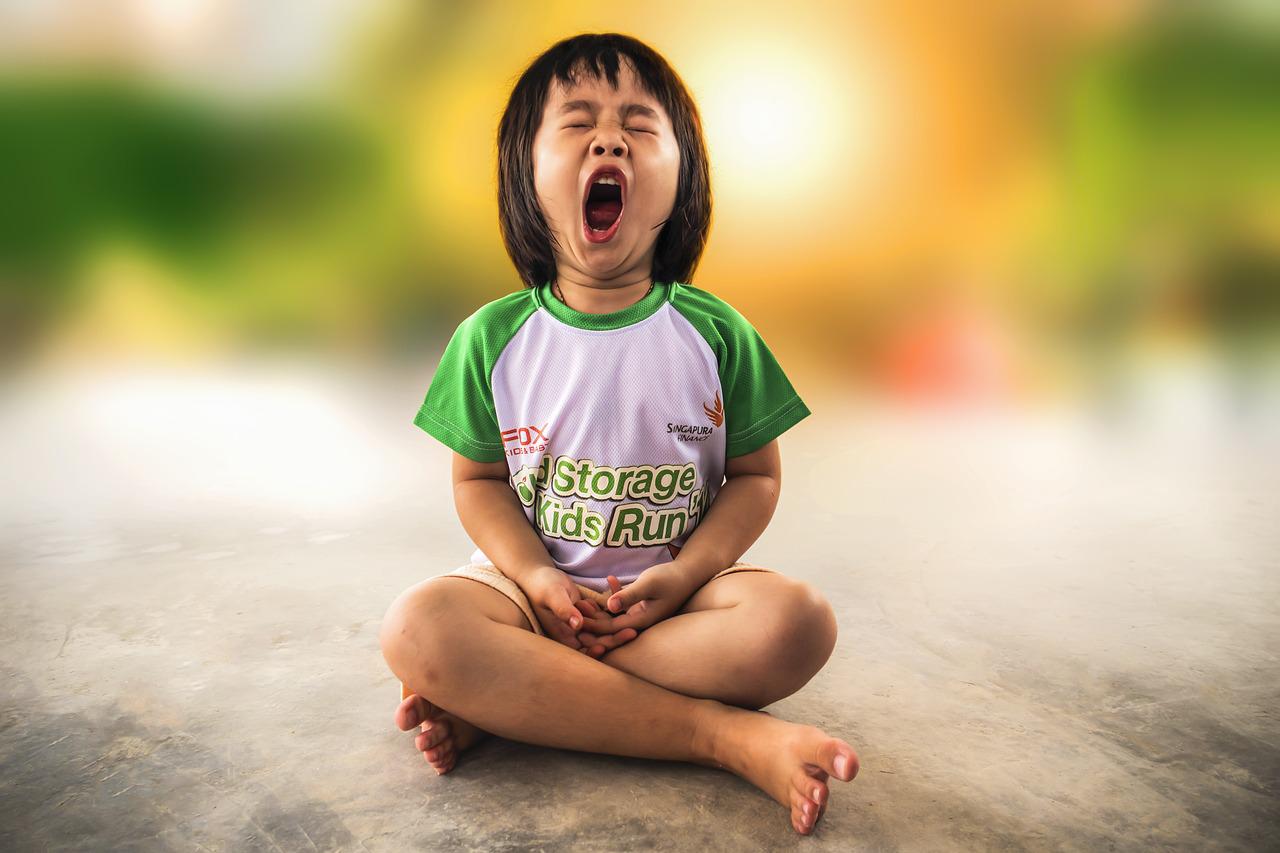
Now, let’s delve into what causes sleep apnea in children. It typically occurs when a child’s throat relaxes too much during sleep, causing the walls of the throat to collapse as neck muscles relax. This results in an unusually narrow airway. While it’s normal for throats to relax during sleep, in cases of sleep apnea, the air passages can be partially or completely blocked. The duration of these blockages can vary, occurring for just a few seconds at a time or, in severe cases, every few minutes. Naturally, symptoms worsen if the child has a congested nose due to a cold or allergies.
Various factors contribute to children developing sleep apnea, such as oversized adenoids and tonsils, genetic issues leading to narrow airways, small jaws, or facial deviations. It’s more common in children with Down Syndrome. Weight can also be a factor, as overweight children may have excess fat or skin around the chin and neck area. Even the hormonal changes in pre-teen kids can affect their muscles and nervous systems, potentially leading to sleep apnea.
When To See a Doctor
Now, when it comes to recognizing sleep apnea, loud and persistent snoring is something to watch out for, just as in adults. If heavy breathing coincides with a cold, allow the symptoms to subside and observe whether they disappear when your child is feeling better. However, if your child is otherwise healthy and exhibits unusual or noisy breathing while sleeping, it’s time to investigate. It could potentially be a sign of sleep apnea or another respiratory condition like allergies or asthma. If your child is simply a light sleeper or frequently wakes up during the night, it could indicate anxiety or night terrors, both of which require attention. After all, children, and their parents, need their rest, and sometimes a visit to the doctor can resolve such issues.
Snoring and heavy breathing in children (as in adults) are not always a sign of sleep apnea but loud and persistent snoring is definitely something to watch out for (this is where many wives start to diagnose their husbands!) If the heavy breathing is noticed during a cold, let the symptoms pass and then continue to watch to see if the problems simply disappear when they are feeling better. If however, your child is healthy, unusual or noisy breathing while they are sleeping should be investigated. It may possibly be a sign of sleep apnea, or any other another respiratory condition such as an allergy or asthma. If a child is merely a light sleeper or continues to wake up during the night this could indicate signs of anxiety or night terrors and doesn’t involve breathing issues, either way children (and parents) need their sleep and sometimes they can be simple issues solved by a visit to the doctor.
Diagnosis and Treatment
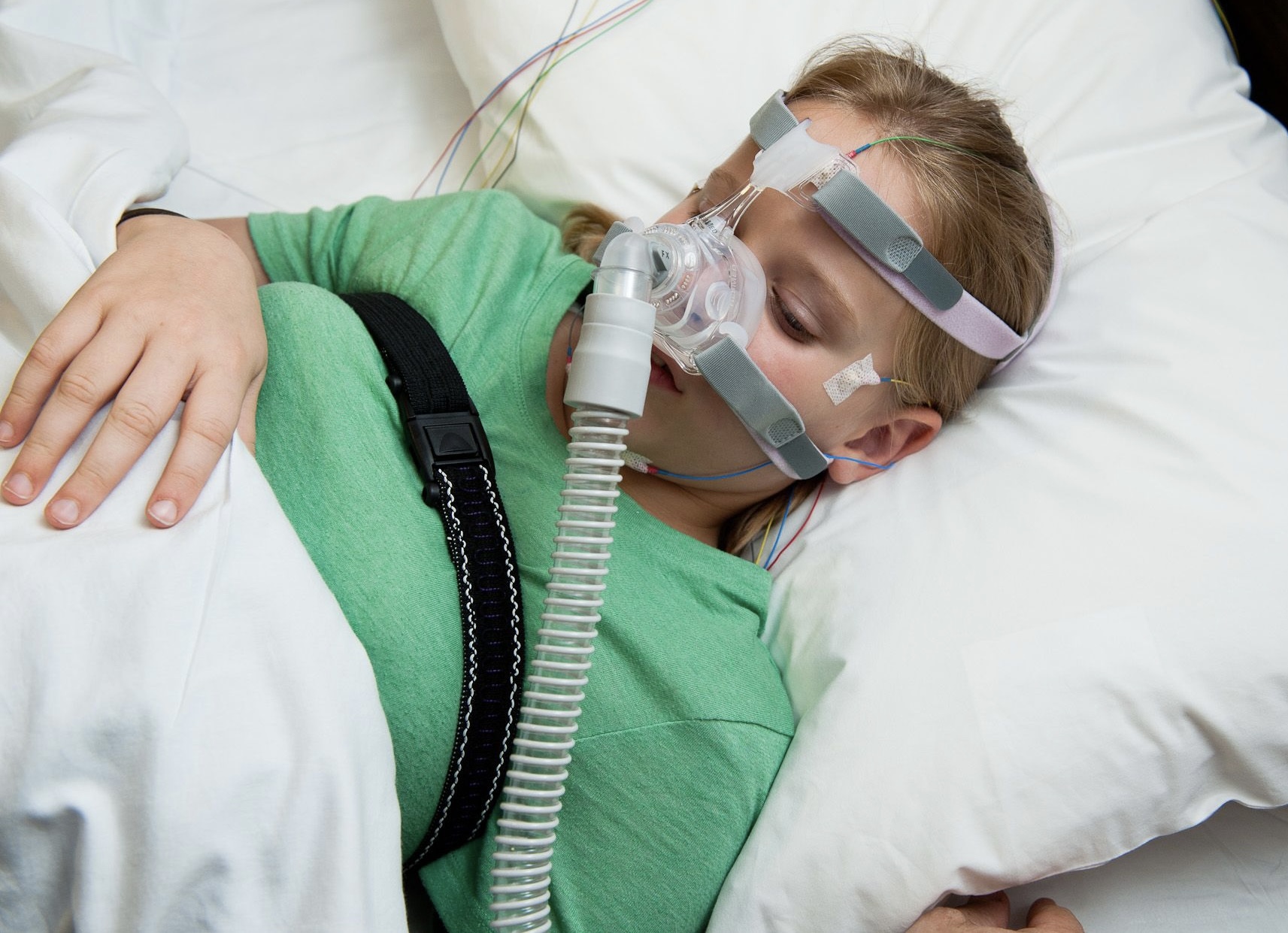
If your doctor suspects sleep apnea, they may conduct further tests, including a sleep assessment. This assessment involves monitoring your child’s sleep and breathing overnight in a sleep lab, typically at a specialist sleep clinic. They’ll measure oxygen levels and record sleep patterns throughout the night.
Several treatments are available for childhood sleep apnea. One common option is nasal spray or drops containing corticosteroids or a dissolvable powder for young children. These medications can alleviate symptoms, particularly in children with asthma or allergies. Lifestyle changes, such as weight management and eliminating environmental allergens, might also be recommended.
In cases where medical treatments don’t suffice, a Continuous Positive Airway Pressure (CPAP) machine might be used. CPAP, delivered via a mask connected to a machine, can help with breathing. While it might seem uncomfortable to sleep with a mask, many children find it preferable to dealing with sleep apnea symptoms.
Surgery could be considered if there are physical issues like enlarged tonsils, adenoids, or a deviated septum that can be corrected. Surgery may also be an option for less common physical issues affecting the airway structure.
Remember, as parents, our children’s health is paramount. If you suspect sleep apnea or any other health concern, don’t hesitate to seek professional advice and guidance. It’s all about ensuring our little ones have the best possible quality of life.

